While being in debt is never ideal, some types of debt are better than others because of the effect the debt can have on you or your net worth. To reflect this, debt is sometimes broken up into “good debt” and “bad debt.”
“Good Debt” is debt that is an investment back into yourself or that increases the value of what you own. That could include things like student loan debt or things that can grow in value over time such as a mortgage.
"Bad Debt” is when you borrow for something that you are losing money on. This could include things like payday loans or credit card purchases for trendy clothes. Because of how quick cars lose value, auto loans often walk the line between “good” and “bad” debt.
That being said, even if your debt is technically “good,” that doesn’t mean it won’t still end up hurting you if you become unable to make your payments.
If you’ve found yourself falling behind or growing impatient with your debt payments, there are strategies to help you get back in control.
- Debt Snowball Method: With this method, you start small and work your way up. Begin by paying off your smallest debt first. Then, take the amount you were paying for that debt and pay it toward the next smallest debt, and so on until everything is paid off.
- Debt Avalanche Method: Just like an avalanche, you knock out the big things first and then work your way down. Focus on paying off your highest interest rate first, then roll those funds into the next highest, and then the next.
- Debt Management Plan: This is a plan set up by a non-profit or credit counseling agency to help you pay off your debts. Your counselor negotiates and handles everything with your lenders, often helping you get a lower interest rate or waiving fees. Once it’s set up, you only need to make a single payment to the agency, they handle the rest. Be sure to choose someone that you trust. Research various companies or individual counselors to learn more about their background and experience.
- Debt Consolidation: Debt consolidation allows you to combine all of your debts into one payment by taking out a new loan, ideally with a lower interest rate, and using it to pay off your debts. If the value of your home is greater than the balance of your mortgage, consider a cash out refinance or a Home Equity Line of Credit. With a cash out refinance, you refinance your mortgage up to maximum allowed for the value of your home and then receive cash for the dollar amount greater than the loan balance which you can use to pay off your other debts. If you opt for a Home Equity Line of Credit, know that the qualifications may be more stringent and the repayment is not as structured as a mortgage refinance. But, once your debt is paid off, the Line of Credit is available for whatever you need. In all cases, it’s best to talk to your lender to fully understand your options and determine the best solution for your specific situation.
Beyond these major strategies, there are other adjustments that you can make to your approach to debt and daily spending habits that can make a large impact.
- Reduce Expenses: The simplest thing you can do, if you act quickly, is stop spending on anything that isn't essential. Since debt doesn't go away by itself, the faster you stop adding to the problem the better. You might also consider how to reduce your expenses in the short-term, for example, by subletting your apartment or renting out a room in your home until you can get your debt under control.
- Pay More Than Your Minimum Balance: Adding even just a little bit of extra money to your monthly payment can help you pay off your debt sooner and pay less overall. Explore what it would take to pay off your debt early with our debt payoff calculator.
If you took out student loans through the federal government, know that there are a variety of ways to structure repayment that can make paying off your loans easier on your nerves and bank account.
If something happens that makes it hard for you to pay back your student loans, you may be able to postpone payment for a set period of time. You can apply to defer your loans, for example, if you’re in school at least half-time, if you take a parental leave from work, or if you enter a public service organization, such as the armed forces or the Peace Corps.
Unemployment, temporary disability, and other events that may keep you from earning money can also make you eligible for deferment. If your loans are deferred, your payment schedule is halted, and the balance on subsidized Stafford loans doesn’t accumulate interest. Interest does accumulate on unsubsidized loans.
If you don't have a valid reason for deferment but you still can't afford to pay your loans, you can request a forbearance. If a forbearance is granted, you won't have to make payments for a specified period, but your loans will continue to accumulate interest.
If you have more than one federal student loan, you have the option of consolidating the loans into a single Direct Consolidation Loan with a fixed interest rate and one monthly payment. This approach allows you to extend repayment up to 30 years, with monthly payments that are lower than the combined payments you are making on a number of different loans.
What you don't want to do is default, or fail to pay. If you default, you'll be ineligible for future federal loans, your credit report and score will be damaged, your pay may be garnished, and your tax refunds withheld.
Still struggling? Make the call and talk to your lender.
Chances are your lender will be willing to work with you if you’re struggling to make your payments. This is especially true during a recession, natural disaster, or other large scale event with an economic impact.
North Shore Bank is here to help you achieve your financial goals.
Browse more of our financial literacy resources.
Do not rely upon the information provided in this content when making decisions regarding financial or legal matters without first consulting with a qualified, licensed professional. Furthermore, while we have made good faith efforts to ensure that the information presented was correct as of the date the content was prepared, we are unable to guarantee that it remains accurate today. North Shore Bank expressly disclaims any liability arising from the use or misuse of these materials and, by visiting this site, you agree to release North Shore Bank from any such liability.
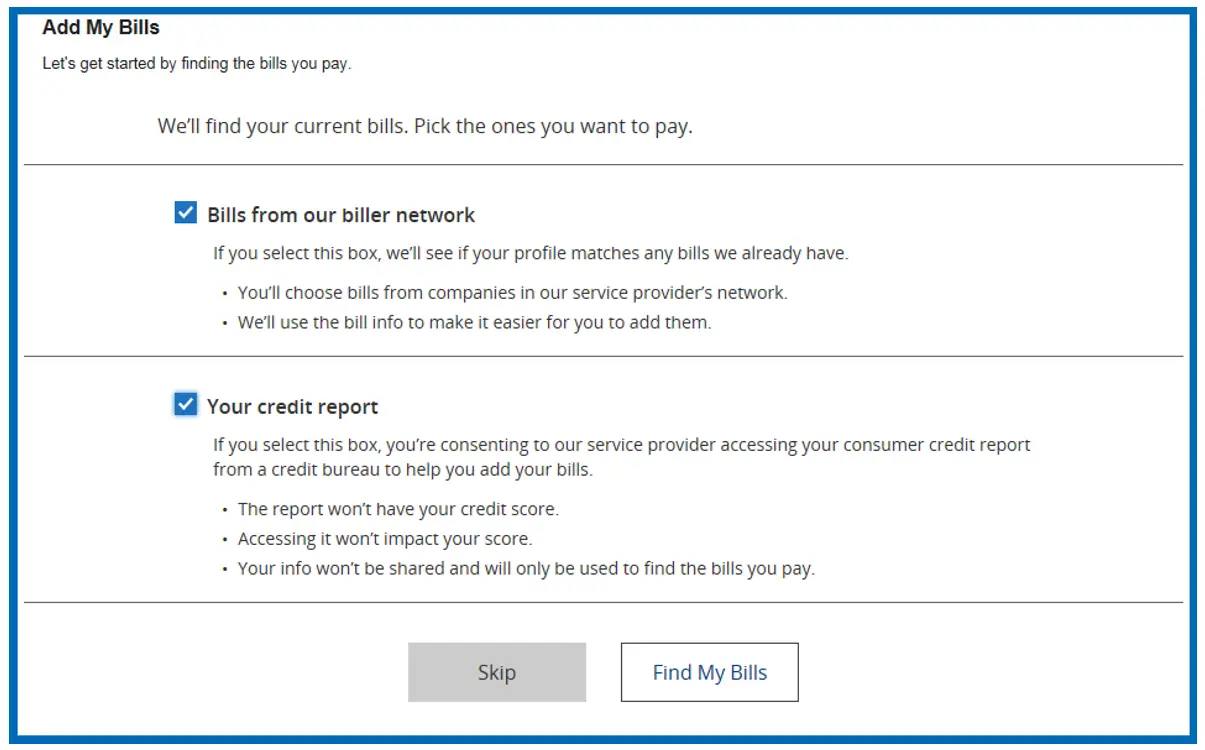
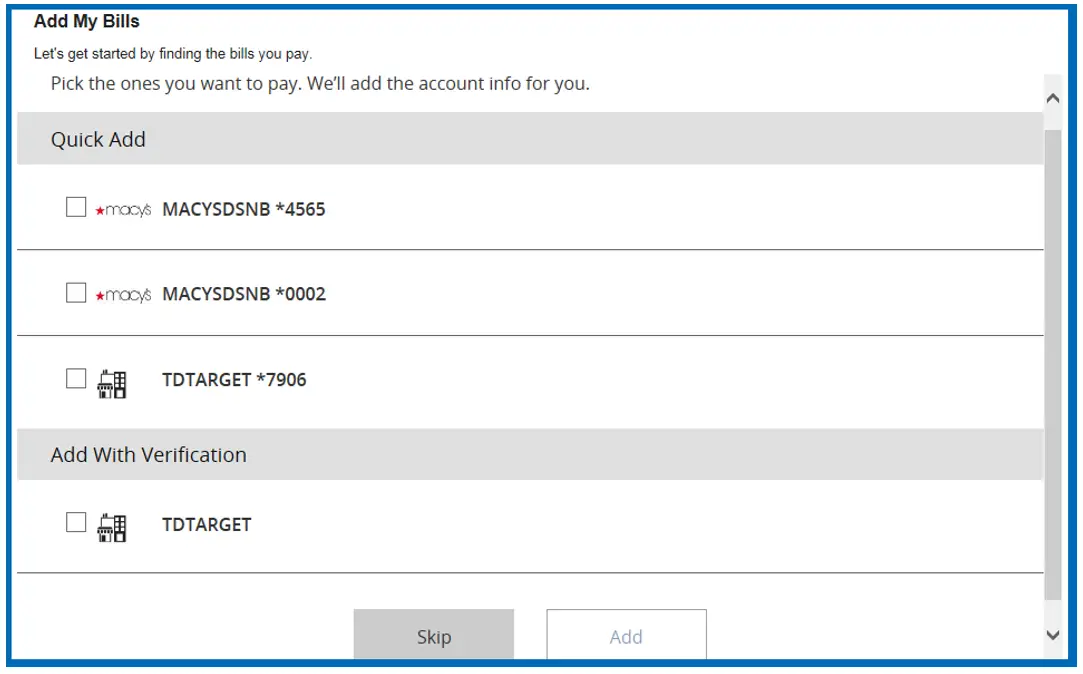
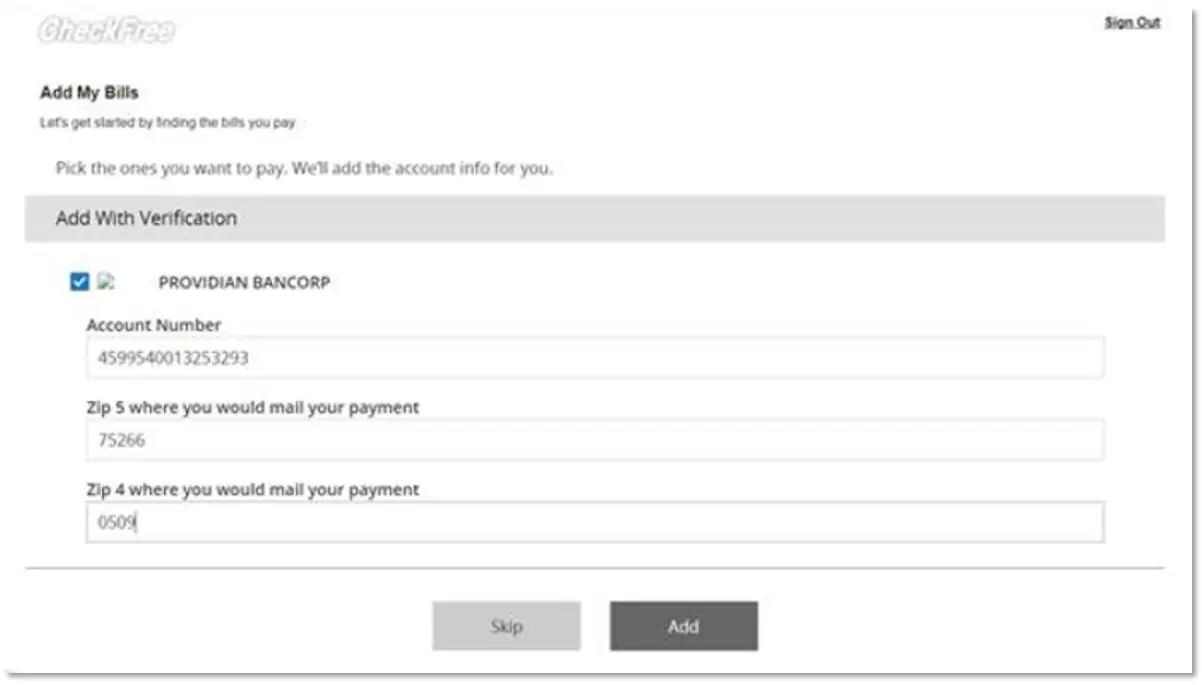
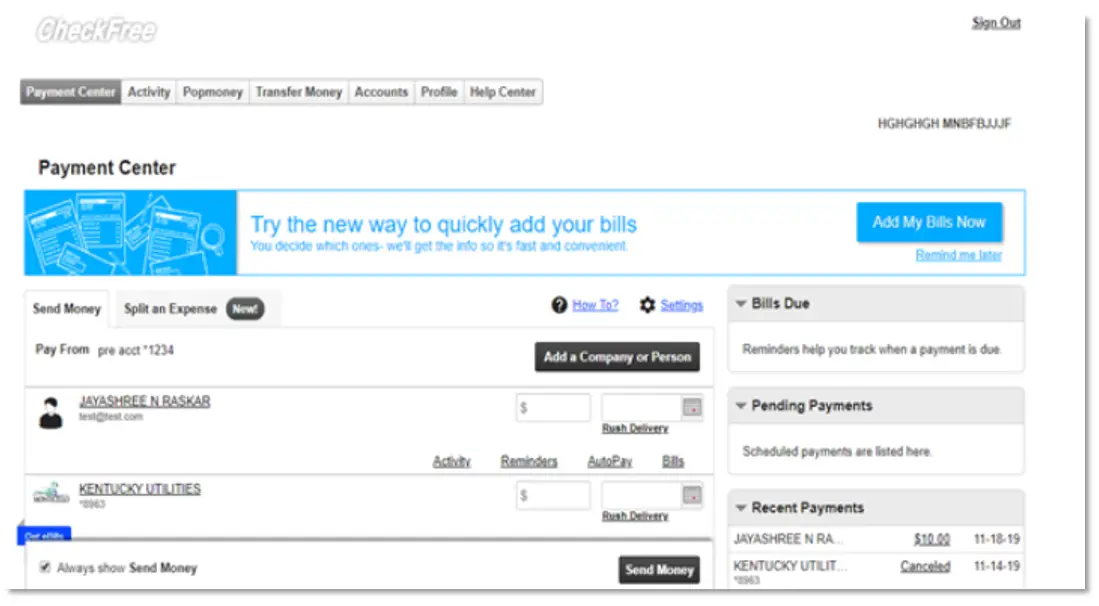
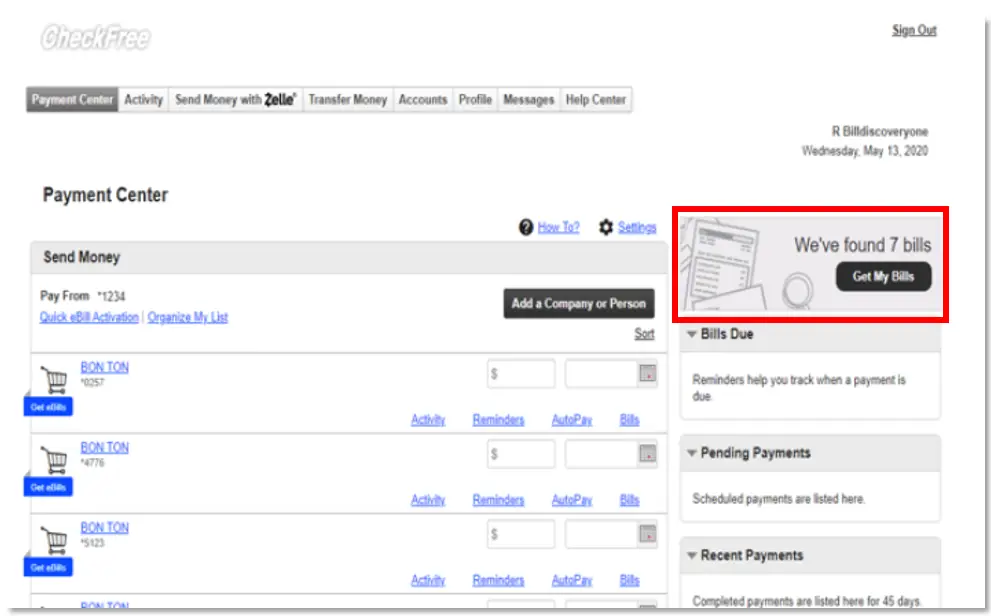
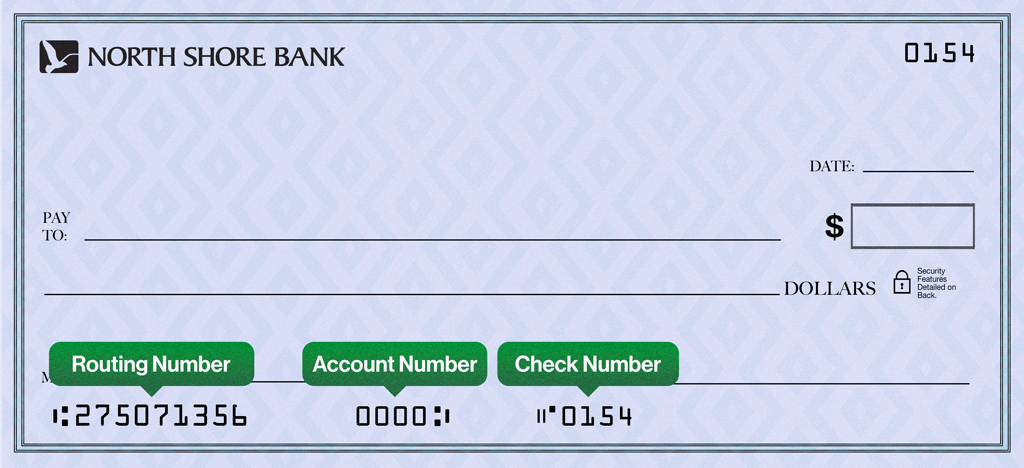 When opening an account online, your initial deposit must be done by transferring money from your current bank account or by debit or credit card.
When opening an account online, your initial deposit must be done by transferring money from your current bank account or by debit or credit card. Click on the three vertical dots alongside the blue “Pay” button
Click on the three vertical dots alongside the blue “Pay” button